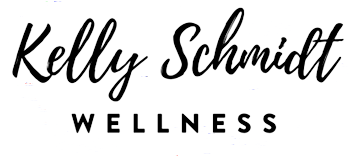Last fortnight I was asked to participate in an online interview (article originally published on: http://www.bloodpressurecharts.net/kelly-o-connell-interview.html) about natural ways to manage high blood pressure. Not only was this request interesting but it is a topic that needs more coverage. High blood pressure, or hypertension, is a silent killer. I hate to be so blunt but there is no way around it – one in four adults (US data) have hypertension. Untreated hypertension can get ugly causing kidney damage, stroke, heart disease, dementia and more. However, with most things related to health, you can turn it around for the better. If hypertension is something you deal with personally, consider the below to incorporate with your daily routine. As always, if you need some help, feel free to contact me.
- What supplements/foods do you recommend people with high blood pressure try, to help lower their blood pressure?
Before advising someone on what to eat and what to supplement with, I first need to understand if there is anything else going on with their health, such as diabetes, kidney disease, etc. I also want to know what medication they are taking.
Generally speaking though, I advise eating a moderately high protein and fat diet, with moderately low (less than 150 grams per day) carbohydrates. Carbohydrates should be mainly sourced from vegetables, legumes/lentils, tubers and fruit.
Important foods to consider are those rich in potassium (bananas, avocado, herbs, cocoa, nuts, and tomatoes), magnesium (pumpkin, squash, cocoa, nuts, fish), vitamin C (citrus fruits, broccoli, bell peppers, cauliflower, cabbage, celery) and vitamin E (almonds, herbs, olives), omega 3 fatty acids (fatty fish like salmon or sardines) and flavonols (red wine, grapes, cocoa). Do you see a trend? I am a believer in dark chocolate/cocoa nibs and consume cocoa in one shape or another daily.
However, more important than knowing what to eat is knowing foods to cut back on, including foods high in fructose and processed foods (chips, deli meat, bread, pastries, cookies, desserts, etc).
Fructose, simply put, is a type of sugar. It is under a lot of scrutiny causing detrimental things to our health including hypertension. While the jury is still out, there is a true consensus that fructose does more harm than good. The important take away is to know what foods are high in fructose i.e. candies/lollies, cold breakfast cereals, desserts such as ice cream, cake, muffins, salad dressing, breads, pizza,crackers, canned fruit and juices with added sweeteners and more.
My recommended supplements include high-quality fish oil, a strong probiotic, magnesium twice a day, Himalayan sea salt and CoQ10. Food always comes first.
- What are your thoughts on salt and high blood pressure? Should we be limiting salt intake or is the salt thing all blown out of proportion?
You may be surprised to hear that I do not stress salt restrictions. Processed foods should certainly get more vigilance in this space. I think overall sodium claims are blown out of proportion and certainly, I strongly advise the use of Himalayan sea salt. Overall, individuals need to self-assess how salt makes them feel. If the consumption of salt makes someone retain fluid or make their heart palpitate/speed up, then a reduced salt intake should be implemented. However, I think there are far more important actions to take than demonizing salt. Focus should zero in on stress levels, adequate sleep, exercise, eating whole foods (this does not include whole grains) and maintaining a healthy weight.
- Not necessarily specific to high blood pressure, but what are your top 5 healthiest foods we should all be trying to eat more of, and why?
Grassfed/free range meat – protein is essential and free range meat, ideally, beef, has an optimal fatty acid ratio, up to 6 times more omega 3’s compared to the grocery store variety. Certainly, omega-3 fatty acids play a vital role in every cell and system in our bodies. Beyond the nutrient profile grassfed/free range beef offers, it is a great tool for optimal health. It is satiating, protective against cancer and cardiovascular disease, has low insulinogenic properties and more.
Coconut – whether it is coconut oil, flour, cream or milk, I welcome it all. I consume this functional food daily, reaping one of the thousands of benefits it offers. In traditional medicine, coconut is used to treat a wide variety of health problems and it is so versatile to use. I make pancakes from coconut flour and milk, I cook with coconut oil, especially with eggs and coconut cream is delicious with berries.
Pumpkin – is loaded with healthy starches and it is absolutely delicious. Pumpkin is nutrient-rich, easy to make and can satisfy a sweet or savory craving. I have learned to cook pumpkin in a variety of fashions from pumpkin soup (with coconut milk and cinnamon), roasted pumpkin salad (with pine nuts, spinach, feta and homemade balsamic dressing) to pumpkin porridge (mixing puree pumpkin with eggs, nuts, and raisins). Pumpkin can also serve as a dessert by garnishing it with spices and honey.
Free range eggs – they are one of few foods that naturally contain vitamin D and are far superior to caged eggs when it comes to nutrient content. They are rich in vitamin A and E and omega 3 fatty acids, among many other important vitamins and minerals.
Fermented foods – I am all about gut health and a happy gut, makes a good immune system. Fermented foods such as sauerkraut, kefir, kimchi, etc provide probiotics to our intestines. There are plenty of benefits to adding probiotics to our bodies, including protection from colon cancer, relief from lactose intolerance and diarrhea, reduction in cavities, and more. Improved digestion means more nutrients, vitamins, and minerals are absorbed, making you an overall healthier being.
Cheers to you and good health,
Kel
.



Leave A Comment
You must be logged in to post a comment.